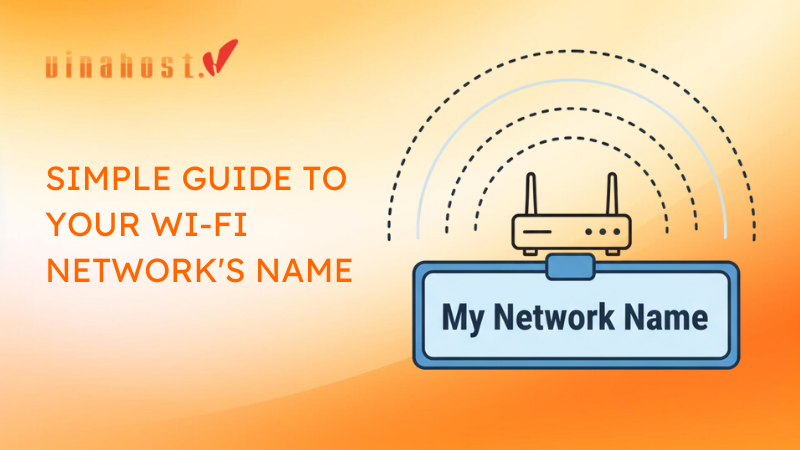Whois is a powerful and essential tool in the realm of Internet governance and domain management, providing critical information about domain name registrations. When you perform a Whois search, you can obtain various details about the domain, including the registrant’s contact information, the domain’s registration and expiration dates, and the name servers associated with it. This article of VinaHost aims to provide you with a comprehensive overview of what is Whois, exploring its functionality, significance, and applications in domain management. Read it now!
1. What is Whois?
What is Whois? WHOIS protocol is a technical term referring to a way of querying databases that store information about internet resources. You can use this protocol to find out who registered a domain name, an IP address block, or other resources.
If the internet is like a giant neighborhood, WHOIS will be the directory everyone uses to find out who lives where. It’s a system that lets you look up information about domain names (like website addresses) and IP addresses (like unique online identifiers).
There are websites like Whois.com and Lookup.icann.org that act like online phonebooks. You can type in a domain name and see details like who registered it, their contact information, and when the registration expires. This is all public information, so anyone can use WHOIS to find out this stuff.
Think of the WHOIS database as a big filing cabinet with information on everyone who has a domain name or has changed their DNS. While there’s no single company running the whole system, a big organization called ICANN sets the rules for how this information is stored.

What is WHOIS record? WHOIS record is the actual data retrieved using the WHOIS protocol. It typically contains information like the name and contact details of the registrant, the registrar (the company that sold the domain name), the name servers, and the creation and expiry dates of the registration.
So, WHOIS is basically a way to find out who owns a piece of internet real estate and how to contact them. It’s a public system with different companies working together to keep it running smoothly.
Also read: What is Domain & How It Impacts Your Online Presence
2. How does Whois work?
Whois is a protocol used to query databases that store registration information about internet resources, such as domain names, IP addresses, and autonomous system numbers.
When you register a domain name, for example, your registrar sends your registration details to a central database called the registry. This information typically includes the registrant’s name, address, email, phone number, and administrative and technical contacts.
When you perform a Whois query, you’re essentially asking this central database for information about a specific domain name, IP address, or other internet resource. The Whois protocol facilitates this query process, allowing you to retrieve registration details about the resource in question.
To perform a Whois query, you can use various online Whois lookup tools or command-line utilities. Once you submit your query, the Whois server responds with the registration information associated with the requested domain name or IP address.
What is Whois privacy? Due to privacy concerns, some domain registrars offer a service called Whois privacy protection, which replaces the registrant’s personal information with the registrar’s contact details in the public Whois database. This helps to protect the privacy of the domain owner.
Also Read: What is VN domain? | Overview of domain names .VN
3. What WHOIS reveals?
WHOIS acts like a public record system for the internet, revealing details about domain names and IP addresses. Here’s what information WHOIS can disclose:
3.1. Domain Name Registrant Details
This is the big one. WHOIS can show you the name and contact information of the person or organization that registered the domain name. It’s like finding out who lives at a particular internet address. However, some domain registrars offer privacy protection services that can mask this information.
3.2. Registrar Information
This tells you the company that sold the domain name to the registrant. A domain registrar is a company authorized to sell domain names to the public. They manage the reservation of domain names and handle the registration process on behalf of individuals or organizations. Whois shows the company or organization where the domain is registered, including their name, website, and contact details.
3.3. Name Servers
Whois reveals the servers responsible for managing the domain’s DNS records, such as website hosting and email services.
3.4. Creation and Expiration Dates
Whois displays when the domain was registered (creation date) and when the registration expires (expiration date) – when the ownership needs to be renewed.
Also Read: The Value of Domain Names: Choosing the Right Domain for Your Website
3.5. Administrative and Technical Contacts (Optional)
Sometimes, WHOIS might also show details about people responsible for managing the domain name, this could include:
- Administrative contact: This person oversees the overall registration of the domain name.
- Technical contact: This person handles any technical issues related to the domain name.
Similar to the registrant details, privacy protection services can also hide the information for administrative and technical contacts.
4. Why WHOIS matters
What is Whois role? Whois plays a pivotal role in ensuring accountability, security, and fairness in the online ecosystem. If you suspect someone is using your copyrighted material or trademark without permission, WHOIS can help you track down the responsible party.
4.1. Identifying Website Ownership
Whois is crucial for establishing the identity of the individuals or organizations behind a website. This transparency is essential for accountability and trust on the internet. Whether it’s for business purposes, verifying the authenticity of a website, or understanding the background of an online entity, Whois provides valuable information about website ownership.
4.2 Combating Online Fraud and Scams
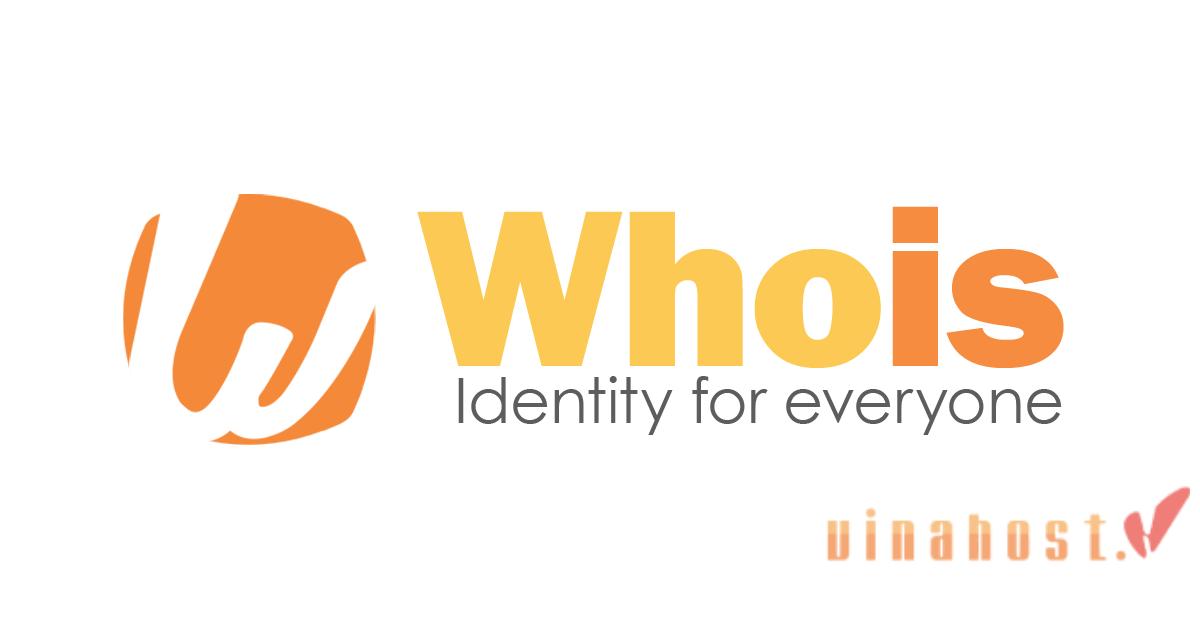
By examining Whois information, users can identify discrepancies or suspicious activities associated with a website, helping to protect themselves from falling victim to online scams.
4.3 Competitive Analysis
Whois data offers insights into the online presence of competitors, market trends, and potential business opportunities. Businesses can analyze Whois records to identify emerging trends, assess the competitive landscape, and uncover potential partnerships or acquisition targets.
Additionally, Whois data can provide valuable information for SEO (Search Engine Optimization) strategies, such as analyzing link profiles or identifying domain expiration dates for potential opportunities.
4.4 Customer Service and Support
Whois information can be used to resolve technical issues or disputes related to domain names.
For example, if a website is experiencing technical difficulties, the Whois record can be used to identify and contact the domain owner or registrar for assistance. Similarly, if there is a dispute over ownership or usage rights of a domain name, Whois data can provide valuable information for resolving the issue through customer service channels or legal means.
4.5 Investigating Intellectual Property Infringement
Intellectual property owners can use Whois data to identify unauthorized use of their trademarks or copyrights online. By examining Whois records, they can identify the owners of infringing websites or domains and take appropriate action to enforce their intellectual property rights.
This may involve sending cease-and-desist letters, filing complaints with domain registrars or hosting providers, or pursuing legal action against infringers. Whois data plays a crucial role in investigating and addressing intellectual property infringement on the internet.
Also read: What is Transfer Domain? & How to Transfer a Domain?
5. Benefits of WHOIS

Here are some key benefits of WHOIS:
- Transparency and accountability: Whois fosters transparency on the internet by disclosing the ownership details of domain names. This transparency is crucial for establishing accountability, as website owners can be held responsible for the content and activities associated with their domains. Knowing who operates a website enhances trust among users, encouraging responsible online behavior.
- Fraud prevention: Whois is a powerful tool in the fight against online fraud and scams. By enabling users to verify the legitimacy of websites through ownership details, Whois helps in identifying fraudulent websites, phishing attempts, and other malicious activities. Prompt detection of such threats allows users to take preventive measures, such as avoiding suspicious websites or reporting them to relevant authorities.
- Cybersecurity: Whois data plays a vital role in cybersecurity efforts by facilitating the identification and mitigation of cyber threats. Security professionals and law enforcement agencies use Whois information to trace the origins of malicious activities, such as cyberattacks, malware distribution, or illegal online activities. With Whois, cybersecurity experts can take swift action to neutralize threats and protect internet users from harm.
- Intellectual property protection: Whois assists intellectual property owners in safeguarding their rights against infringement online. By revealing the ownership details of domain names, Whois helps identify instances of trademark abuse, copyright infringement, or cybersquatting. Armed with this information, intellectual property owners can take appropriate legal action to enforce their rights and protect their brands, content, and creative works from unauthorized use.
- Market analysis and research: Whois data provides valuable insights for market analysis, competitive research, and business intelligence. Businesses can analyze Whois records to understand market trends, monitor competitors’ online activities, and identify emerging opportunities. By tracking domain registrations, acquisitions, or expirations, companies can make informed decisions about marketing strategies, product development, or partnership opportunities, gaining a competitive edge in their industries.
- Dispute resolution: Whois information facilitates the resolution of disputes related to domain names, ownership rights, and online activities. In cases of domain ownership disputes, trademark conflicts, or allegations of abusive behavior online, Whois data serves as valuable evidence for arbitration or legal proceedings. Resolving such disputes fairly and efficiently helps maintain trust and integrity in the domain name system and the broader internet ecosystem.
- Customer service: Whois supports better customer service and support by providing contact information for domain owners and registrars. When users encounter technical issues, billing inquiries, or other concerns related to domain names, Whois data enables them to reach out to the appropriate parties for assistance. Timely and effective customer support enhances user satisfaction and loyalty, fostering positive relationships between businesses and their customers in the online space.
Also read: What is a root domain? | Why does a root domain matter?
6. Privacy and protection in WHOIS
You’ve got what is a whois lookup domain, but what is the difference between privacy and protection in WHOIS? Privacy and protection in Whois have been topics of considerable debate and concern in recent years.
The standard Whois system traditionally required domain registrants to provide personal contact information, such as their name, address, email, and phone number. This raised privacy concerns as it exposed individuals and organizations to potential spam, identity theft, harassment, and other forms of misuse.
Despite privacy concerns, domain registrars were often obligated by domain registry policies or legal regulations to collect and publish registrant information in the Whois database. These requirements aimed to ensure transparency, accountability, and accessibility of domain ownership information but conflicted with privacy rights and data protection laws in some jurisdictions.
To address privacy concerns, many domain registrars began offering Whois privacy services, also known as domain privacy or Whois masking. These services replace the registrant’s personal contact details in the public Whois database with proxy or anonymized contact information provided by the registrar. This helps protect the privacy of domain owners while still complying with registry requirements.
While Whois privacy services enhance privacy for domain owners, they can also pose challenges for law enforcement, cybersecurity professionals, intellectual property lawyers, and other stakeholders who rely on Whois data for investigations, enforcement actions, or legal proceedings. Access to accurate and up-to-date Whois information is essential for identifying and addressing online abuses, such as cybercrime, fraud, trademark infringement, or illicit activities.

The challenge lies in striking a balance between privacy rights and the need for transparency, accountability, and security in the domain name system. While protecting individuals’ privacy is essential, it’s equally important to ensure that Whois data remains accessible to authorized parties for legitimate purposes, such as domain management, cybersecurity, legal compliance, and public interest activities.
Also read: What is domain .com.vn? | Overview of domain names .com.vn
7. How to perform a WHOIS lookup
What is whois lookup tool? There are two main ways to perform a WHOIS lookup:
Using a WHOIS lookup tool: This is the easiest and most common way. There are many free WHOIS lookup tools available online. Here are some popular options:
- Whois.com: https://www.whois.com/
- Lookup.icann.org: https://lookup.icann.org/
These websites have a simple search bar where you can enter a domain name or IP address. Once you enter the information, the tool will query the WHOIS database and display the results for you.
Using the whois command line tool (for advanced users): If you are comfortable using the command line, you can use the whois command to perform a WHOIS lookup. This method is available on most Unix-based systems, including Linux and macOS.
Here’s how to use the whois command:
whois domain_name_or_ip_address
For example, to perform a WHOIS lookup for google.com, you would type:
whois google.com
The output of the whois command can be quite technical, so you may need some help interpreting it. However, many resources online can explain what the different parts of the WHOIS record mean.
The tool will retrieve and display the Whois information for the specified domain name or IP address. This information typically includes:
- Domain name Registrant details: Name, address, email, and phone number of the registrant (if not protected by privacy services).
- Name servers: The name servers associated with the domain name.
- Registrar information: Name and contact details of the domain registrar.
- Domain creation and expiration date: The date when the domain name was created and when it is set to expire.
- Administrative and technical contact: Contact details for individuals or entities responsible for administrative and technical aspects of the domain.
When performing a WHOIS lookup, you need to keep in mind that:
- The information available in the WHOIS database may vary depending on the domain name extension (.com, .org, etc.) and the registrar used.
- Some domain registrars offer privacy protection services that can mask some of the WHOIS information, such as the registrant’s contact details and replaced with proxy contact details.
- WHOIS lookups are typically performed on a “best effort” basis. There is no guarantee that the information in the WHOIS database is accurate or up-to-date.
- Use Whois lookup responsibly and ethically, respecting privacy and data protection regulations.
Also read: What is Domain Backorder? | Everything you need to know
8. The Future of WHOIS
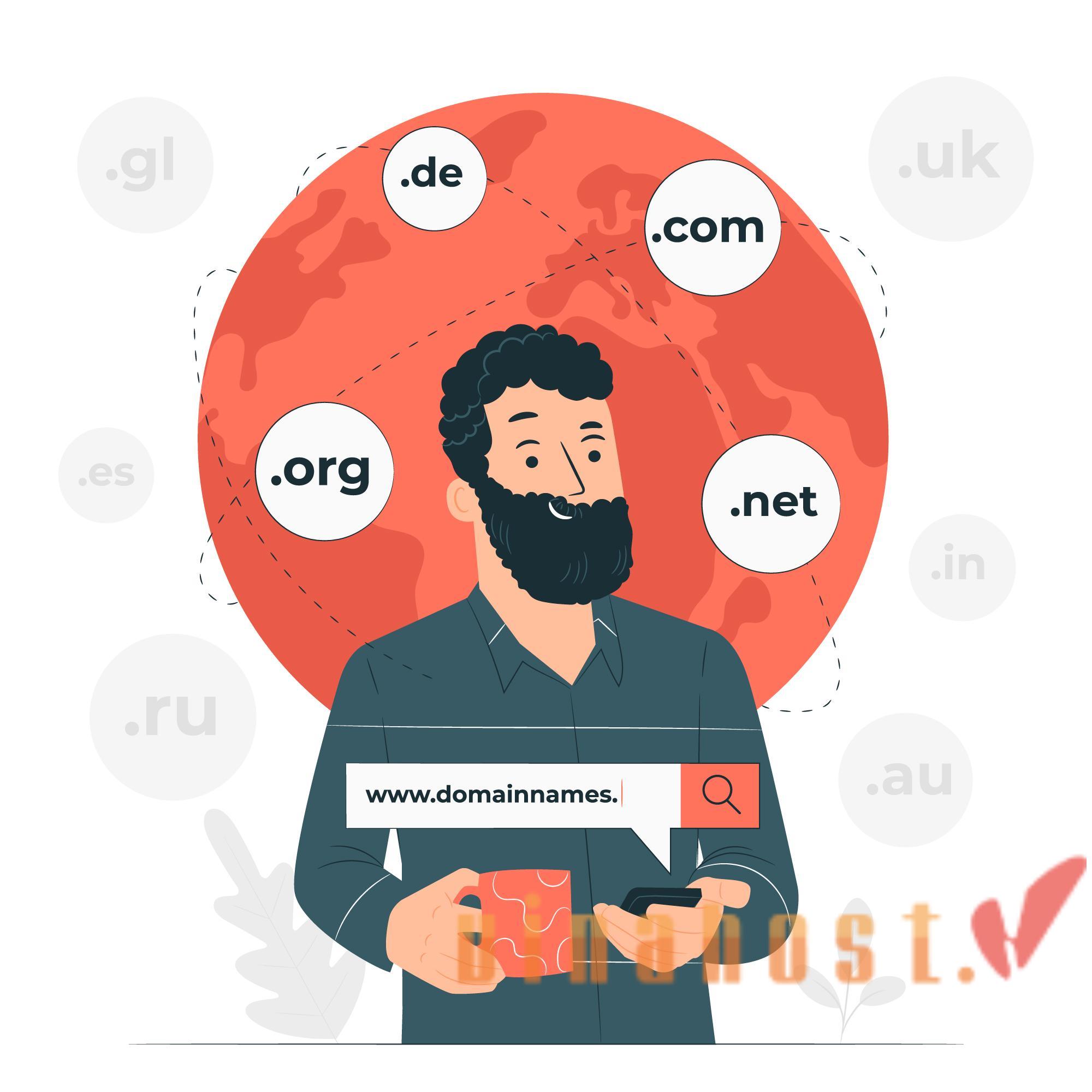
Increased privacy and data protection:
- GDPR compliance: The introduction of the General Data Protection Regulation (GDPR) in the European Union has already led to significant changes in how Whois data is handled. Registries and registrars have implemented measures to protect personal data, such as redacting certain information from public Whois records.
- Global privacy standards: As more countries adopt stringent data protection laws, Whois services will continue to evolve to ensure compliance with these regulations. This might involve further anonymization or restricted access to personal data in Whois records.
Evolving regulatory frameworks:
- ICANN policies: The ICANN plays a crucial role in setting policies for Whois. Ongoing policy development processes within ICANN, such as the Expedited Policy Development Process (EPDP) on the Temporary Specification for gTLD Registration Data, will shape the future structure and accessibility of Whois data.
- International cooperation: Harmonizing Whois practices with international data protection laws will require continued collaboration among global stakeholders, including governments, registries, registrars, and privacy advocates.
Enhanced security and accuracy:
- Anti-Abuse measures: Ensuring the accuracy and integrity of Whois data will be essential in combating cybercrime, fraud, and other online abuses. Measures to verify the accuracy of registrant information and prevent misuse will likely be strengthened.
- Access control: Future Whois systems might implement tiered access controls, where different levels of data access are granted based on the requester’s identity and purpose. For instance, law enforcement agencies and cybersecurity professionals might have access to more detailed data compared to the general public.
Technological advancements:
- Modernized protocols: The development and adoption of new protocols, such as the Registration Data Access Protocol (RDAP), are expected to replace the traditional Whois protocol. RDAP offers enhanced features, including better support for internationalization, secure access, and standardized responses.
- Integration with other systems: Whois data might be more tightly integrated with other internet infrastructure and cybersecurity systems, providing more comprehensive and real-time data for various stakeholders.
- Balancing transparency and privacy: Finding the right balance between privacy and transparency will require ongoing dialogue among all internet stakeholders. Balancing the needs for privacy protection with the necessity of access to Whois data for legitimate purposes, such as cybersecurity, law enforcement, and intellectual property enforcement, will remain a key challenge.
Public awareness and education: As changes in Whois policies and practices are implemented, it will be important to educate the public about how to use Whois responsibly and understand the implications of data privacy and access.
Additionally, collaboration among global stakeholders will be crucial to ensuring that Whois continues to serve its essential functions while respecting individuals’ privacy rights:
- ICANN: This organization plays a key role in overseeing the WHOIS system, and they will likely continue to be involved in shaping its future.
- National and regional regulators: Governments around the world are increasingly concerned about data privacy and online security. Their regulations could significantly impact the future of WHOIS.
- Technology companies and domain Registrars: These entities have a vested interest in a functional WHOIS system. They will likely play a role in developing new solutions.
Also read: What is .net.vn domain? | Overview of domain names .net.vn
9. FAQs
9.1. Is WHOIS information always accurate?
No, WHOIS information isn’t always accurate. There are some key reasons for this:
- Lack of enforcement: While ICANN sets guidelines for WHOIS data, enforcing them can be challenging. There’s no guarantee that registrants provide accurate information in the first place, and registrars may not always verify it thoroughly.
- Privacy protection services: Many domain registrars offer WHOIS privacy protection services. These services mask some of the WHOIS information, often including the registrant’s name, address, and phone number. This can make it difficult to verify the accuracy of the remaining information.
- Out-of-date information: People and organizations move, and contact details change. WHOIS information relies on registrants updating their information when things change, but this doesn’t always happen. So, the WHOIS record might not reflect the current situation.
- Data entry errors: Human errors during the registration process can lead to incorrect information being entered into the Whois database.
- Compliance and regulatory changes: Different jurisdictions have varying regulations about data accuracy and privacy. Compliance with laws like the GDPR has led to the redaction or anonymization of Whois data, which can limit the amount of accurate, publicly accessible information.
While Whois information is a valuable tool for many purposes, it is important to be aware of its limitations and potential inaccuracies. Verifying Whois data through multiple sources and understanding the context in which it is provided can help mitigate some of these issues.
9.2. Can I hide my WHOIS information?
Yes, you can hide some of your WHOIS information, specifically your contact details like name, address, and phone number. This is done through a service called WHOIS privacy protection offered by most domain registrars.
Whois privacy protection services (also known as Whois masking, privacy services, or domain privacy) replace your personal contact information in the public Whois database with the contact details of the privacy service provider. This typically includes the name, address, phone number, and email of the privacy protection service.
Benefits of WhoIs Privacy:
- Enhanced privacy: Your personal information is not publicly visible, which helps protect against identity theft, spam, harassment, and other privacy invasions.
- Reduced spam: By hiding your email address, you can avoid spam and unsolicited contact from marketers and scammers.
- Increased security: Protecting your personal information can reduce the risk of social engineering attacks.
Here’s how WHOIS privacy protection works:
- When you register a domain name, the registrar typically asks if you want to enable WHOIS privacy protection.
- When Whois privacy is enabled, queries to the Whois database will return the contact details of the privacy service instead of your personal information. The privacy service will typically forward legitimate inquiries to you without revealing your actual contact details.
- This way, your personal details are shielded from public view.
Whois privacy protection is usually offered for an additional fee. The cost can vary depending on the domain registrar and the specific privacy service provided. Besides, WHOIS privacy protection typically hides your contact details, but it usually won’t hide information like the domain name registrant organization (if applicable) and the creation date of the domain.
Sometimes, WHOIS privacy protection might make it more difficult to verify your domain ownership for certain activities, such as obtaining an SSL certificate.
In some cases, legal authorities or organizations with legitimate interests (e.g., law enforcement, intellectual property rights holders) may be able to request access to the underlying registrant information through proper legal channels.
You can refer to VinaHost Whois Protection pricing below:
| SERVICE | PRICE (10% VAT INCLUDED) | REGISTER |
|---|---|---|
| REGISTRY LOCK (FOR DOMAIN .VN) Prevent unauthorized use of domain names | $16.50 / year | Register |
| WHOIS PROTECTION (FOR INTERNATIONAL DOMAIN) Protect private information of domain names | $4.95 / year | Register |
| DNSSEC (FOR INTERNATIONAL DOMAIN) Extensive security for the DNS system | $1.10 /year | Register |
| DNSSEC (FOR VIETNAMESE DOMAIN) Extensive security for the DNS system | $2.20 /year | Register |
VN Domain Registration | VN Domains | Just 22$
9.3. Are there any legal implications of using WHOIS information?
Yes, there are several legal implications of using Whois information, especially regarding domain names:
- Compliance with privacy laws: Whois data usage must comply with regulations like GDPR and other regional data protection laws.
- Legitimate purposes: Whois information should be used for legitimate purposes such as verifying domain ownership, resolving technical issues, and protecting intellectual property.
- Misuse consequences: Misusing Whois data can lead to legal penalties and violations of registrar terms of service.
- Law enforcement access: Authorities may access Whois information for investigations and legal proceedings, often requiring compliance from registrars.
- Domain disputes: Accurate Whois information is crucial in resolving domain disputes and enforcing intellectual property rights.
Here are some recommendations for using WHOIS information legally:
- Only use WHOIS information for legitimate purposes.
- Respect the privacy of others.
- Be aware of data privacy laws in your jurisdiction.
- Don’t rely solely on WHOIS information for important decisions.
- If unsure about the legality of your intended use, consult with a lawyer.
9.4. What are some alternatives to WHOIS for finding website ownership?
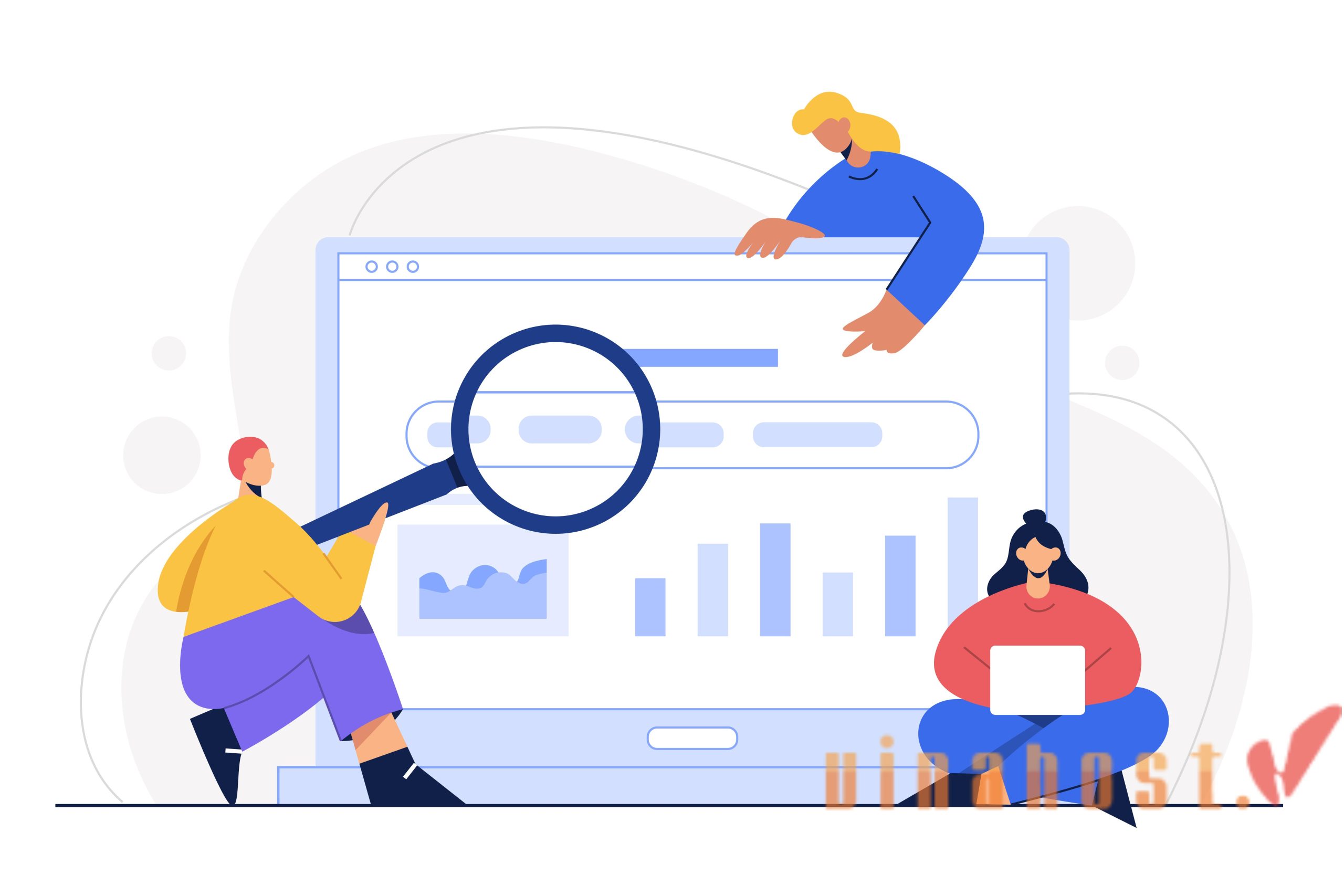
DNS Records: For those comfortable with technical details, checking a website’s DNS records can reveal clues about ownership. Tools like MXToolbox or DNS Lookup can be used for this purpose. Ownership information might be found in the registrant contact details within the DNS record. However, privacy protection can still mask this information.
Reverse IP lookup: This technique involves entering the website’s IP address into a reverse IP lookup tool. These tools can sometimes reveal the domain name associated with the IP address, which can then be used for a WHOIS lookup to find ownership details (if privacy protection isn’t enabled). However, it’s important to note that:
- A single IP address can host multiple websites. So, the information might not be specific to the website you’re interested in.
- Reverse IP lookup results can be inaccurate or incomplete.
Social media and professional networks: Many businesses and individuals associated with a website will have LinkedIn profiles. You can search for the business name or related individuals can yield useful information. Platforms like Twitter, Facebook, and Instagram can also provide insights into who is behind a website, especially if the website is promoted there.
Company registries and databases: For websites associated with registered businesses, you can often find ownership information in public business registries. You can look up the business name in state or country-specific company registration databases. Websites like Companies House (UK), the SEC’s EDGAR database (USA), and similar services in other countries can be useful.
Archives and cached pages: The Internet Archive’s Wayback Machine can show historical versions of a website, which might include older contact information that has since been removed. Sometimes Google’s cached pages or archive services can reveal older contact information that was publicly available.
10. Conclusion
In conclusion, Whois remains an indispensable tool in the Internet governance, domain management, and cybersecurity. Its ability to provide detailed information about domain registrations, including registrant contact details, registration dates, and associated name servers, makes it a crucial resource for various stakeholders. Whois serves multiple purposes, from managing domain assets to investigating potential cyber threats and enforcing intellectual property rights.
We hope this article serves as a valuable resource for learning about what is WhoIs. If you need to register WhoIs Protection for your domain name, please contact us via infor below.
Find out more articles at our Blog and don’t hesitate to contact us for support:
- Email: support@vinahost.vn
- Hotline: 1900 6046
- Livechat: https://livechat.vinahost.vn/chat.php
>>> Read more:
What is VNNIC? | Everything you need to know VNNIC VN
What is Addon Domain – A Gateway to Website Expansion
What is a Subdomain? Exploring the Difference Between Domains & Subdomains


 Tiếng Việt
Tiếng Việt English
English 简体中文
简体中文



















































































